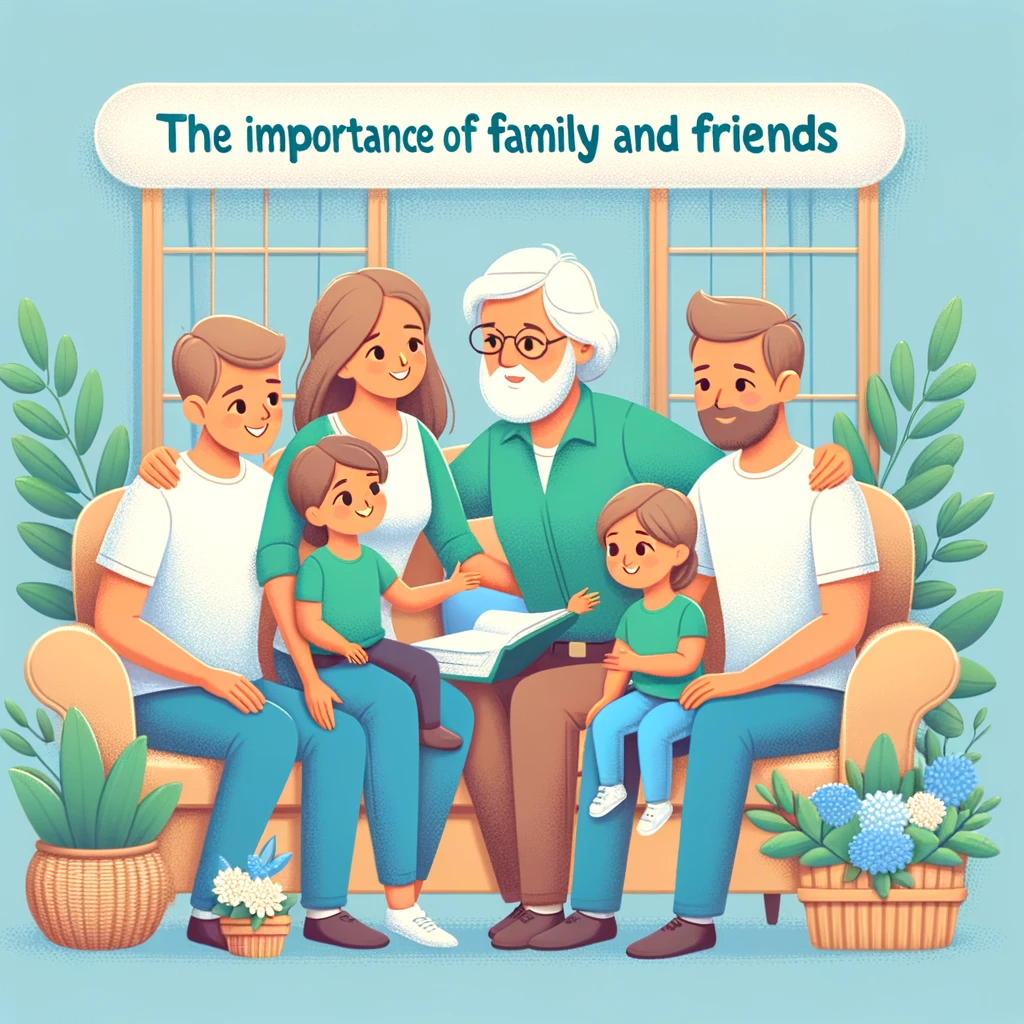What are Emotional Illnesses?
A Hidden World of Feelings
Emotional illnesses, often unseen but deeply felt, are like invisible companions that can significantly affect how we feel and act. Imagine having a friend that no one else can see, who sometimes makes you feel sad, nervous, or very worried. Unlike a physical ailment like a cold or a scraped knee, this friend, an emotional illness, is hidden from view but is very real in how it impacts your life.

These emotional illnesses can come in various forms and intensities, much like different weather patterns in an unseen world. Just as weather affects the environment, these emotional states influence your inner world. Sometimes they can be like a light rain, causing a bit of sadness or worry. Other times, they can feel like a thunderstorm, bringing intense feelings of fear, anxiety, or despair.
Understanding emotional illnesses requires us to look beyond the visible. It’s about recognizing that what happens in our minds can be just as real and impactful as what happens to our bodies. These illnesses can shape our perception of the world, how we interact with others, and how we see ourselves. They can make everyday tasks feel more challenging, like walking through a thick fog where it’s hard to see or find your way.
Emotional illnesses can be caused by many different factors. Sometimes they’re like echoes of difficult experiences from the past – things that hurt us or scared us. Other times, they can be like a tangled knot of worries about the future, things we’re scared might happen. They might even be influenced by changes in our bodies, like a boat being rocked by unseen currents below the surface.
For some, these emotional illnesses are like uninvited guests that come and go. For others, they might feel like constant companions, always there in the background. They can affect people of all ages, from all walks of life. It’s important to remember that having an emotional illness doesn’t mean someone is broken or weak. It simply means they have an invisible challenge they’re facing.
Dealing with emotional illnesses often requires patience, understanding, and support. It’s like learning to navigate a path through a dense forest. There are times when the journey might feel lonely and scary, but with the right tools and guidance, it’s possible to find your way through.
One of the most crucial tools in managing these illnesses is communication. Talking about how you feel with someone you trust can be incredibly helpful. It’s like shining a flashlight in the dark, helping to make sense of what’s hidden in the shadows. By talking, you can start to untangle the confusing mix of emotions and thoughts, and begin to understand them better.
Another key part of managing emotional illnesses is learning coping strategies. These are like tools in a backpack that help you on your journey. Coping strategies can include things like mindfulness exercises, which help you stay grounded in the present moment, or relaxation techniques, which help calm your mind and body. Creative activities like drawing, writing, or playing music can also be powerful outlets for expressing and processing your feelings.
It’s also important to build a support network of people who understand and care. This could include family, friends, teachers, or counselors. Having people who listen and offer empathy and encouragement can make a big difference. They’re like friendly guides on your journey, offering support and helping you find your way.
Remember, emotional illnesses are part of the human experience. They’re not something to be ashamed of or to hide. By acknowledging and understanding these invisible parts of our lives, we can start to take control of them, rather than letting them control us. With time, patience, and support, it’s possible to learn how to manage these illnesses, so they don’t keep you from living a full and happy life.
Breaking Myths
Understanding the Truth

In the realm of emotional illnesses, understanding the truth can be challenging, particularly because these ailments are not visible to the eye. Unlike a physical injury that can be seen and easily recognized, emotional illnesses are hidden, dwelling within the intricate workings of our minds and emotions. This invisibility often leads to misunderstandings and misconceptions about their nature and impact.
Many people find it hard to grasp the concept of emotional illnesses because they lack tangible evidence. It’s easy to understand why someone needs to rest when they have a broken leg, but when someone is struggling with depression, anxiety, or another emotional illness, the reasons for their behavior aren’t always so clear. As a result, people might mistakenly believe that someone who is sad or anxious can simply choose to feel better, as if happiness is a switch that can be flipped on demand. However, the reality is far more complex.
Emotional illnesses can be compared to intricate puzzles, each piece representing different aspects of a person’s life experiences, thoughts, feelings, and biological makeup. These pieces come together in unique ways for each individual, creating a complex picture that can’t be easily deciphered. Solving this puzzle requires patience, understanding, and often professional help.
There are numerous reasons why someone might experience emotional illness. Some people might have gone through extremely difficult or traumatic experiences that leave deep emotional wounds. Others might have a biological predisposition that makes them more susceptible to these illnesses. Environmental factors like stress, relationship problems, or even chronic physical illness can also contribute to the development of emotional health issues.
Just as the causes are varied, so too are the manifestations of these illnesses. For some, depression might manifest as a deep and persistent sadness, a feeling of emptiness, or a loss of interest in life. For others, anxiety could present as an overwhelming sense of worry or fear, even in situations that might seem safe to others. There are also illnesses that affect mood in more extreme ways, such as bipolar disorder, which involves periods of depression followed by phases of mania.

Unfortunately, the lack of understanding about these illnesses often leads to stigma. Stigma is like a big, dark cloud of judgment and shame that hangs over people with emotional illnesses. It makes them feel misunderstood, isolated, and hesitant to seek the help they need. This can be incredibly harmful, as it prevents many from accessing the support and treatment that could significantly improve their quality of life.
It’s crucial to challenge these misconceptions and stigma by spreading awareness and education about emotional illnesses. This involves not only understanding the complexities of these conditions but also recognizing the courage it takes for individuals to navigate these challenges. It means showing empathy and compassion, listening without judgment, and supporting those who are struggling.
Moreover, it’s important for society as a whole to foster an environment where mental health is taken as seriously as physical health. This includes providing adequate mental health services, encouraging open conversations about emotional well-being, and promoting policies that support individuals with mental health challenges.
One of the most powerful ways to break down stigma is through storytelling and sharing personal experiences. When people openly share their journeys of living with emotional illnesses, it helps to humanize the issue, making it more relatable and less abstract. These stories can inspire others to seek help, reduce feelings of loneliness and isolation, and build a community of understanding and support.
In schools, workplaces, and communities, it’s vital to create spaces where discussions about emotional health are encouraged and
Talking Openly
Sharing and Learning
Talking about these emotional illnesses is very important. When you share what you’re feeling, it’s like opening a window in a dark room. It helps you see everything more clearly. And by talking about it, you also help others understand that it’s okay to have these feelings.
Real-Life Superheroes
Family and Friends

Your family and friends are much more than just people you spend time with; they can be your superheroes in many ways, especially when you’re facing the challenges of emotional illnesses. Imagine having a team of heroes, each with their own special power to help, support, and protect you. That’s what family and friends can be like.
When you’re feeling down, confused, or scared, a listening ear from someone who cares can make a world of difference. Your family and friends can offer this compassionate listening, providing a safe space for you to express your deepest thoughts and feelings. Sometimes, just the act of sharing what’s on your mind can lighten your load. It’s like a superhero power that turns your worries into whispers that are easier to manage.
But their superpowers don’t stop at listening. They can also provide help in many practical ways. Whether it’s helping you with day-to-day tasks when you’re feeling overwhelmed, offering advice based on their own life experiences, or simply being there to hang out and distract you from your troubles, their presence can be a source of comfort and strength.
Perhaps one of the most magical powers of friends and family is their ability to make you laugh and smile, even when sadness feels heavy. Laughter can be a bright light in darker times, a reminder that joy is still possible. It’s a superhero power that can lift spirits and bring a sense of hope.
It’s crucial to remember that you are loved and valued, and your family and friends are a testament to this. Their love and support are unwavering, like a shield protecting you from the storms of emotional challenges. They remind you that you’re not alone on your journey, that there are people who care deeply about you and are ready to help whenever you need it.
In essence, family and friends play a vital role in supporting emotional well-being. Their love, understanding, and care are like superpowers that help navigate the complexities of emotional illnesses. They are your allies in this journey, providing strength, laughter, and love, making the path towards healing and happiness less daunting and more filled with hope.
Learning to Help
How We Can Be Better Friends
In the journey of life, one of the most meaningful roles we can play is that of a good friend. This role becomes even more significant when it comes to supporting those experiencing emotional illnesses. Being a good friend in such scenarios is not just about being present; it’s about cultivating understanding, empathy, and kindness.
Listening is the cornerstone of being a supportive friend. It’s more than just hearing the words being said; it’s about truly understanding the emotions and feelings behind them. Active listening involves giving your full attention, acknowledging what’s being shared without rushing to respond, and showing that you’re engaged in the conversation. It’s about creating a safe space where your friend feels heard and validated.
Being kind is another essential aspect of friendship. Kindness can be shown in small, everyday actions – a warm smile, a thoughtful gesture, or a reassuring word. It’s the act of showing that you care and are there to support them. Sometimes, kindness also means being patient, especially when dealing with emotional illnesses. Your friend might have good days and bad days, and understanding this fluctuation is a vital part of being kind and supportive.
Trying to understand what others are feeling is a skill that involves empathy – the ability to put yourself in someone else’s shoes. Empathy allows you to feel what your friend is going through and offer support that resonates with their experience. It’s about acknowledging their feelings without minimizing or trying to solve their problems immediately. This kind of understanding can create a deep bond and offer significant comfort to someone going through emotional difficulties.
Sometimes, the best way to help is simply by being there. Offering your presence can be a powerful form of support. It might mean sitting together in silence, being a companion during difficult times, or just letting them know that you’re there for them, no matter what. Saying, “I’m here for you,” and meaning it, can provide an immense sense of security and support.
Being a better friend also means being aware of your own emotions and how they can impact your ability to support others. It’s important to take care of your emotional health so that you can be there for your friends in a healthy and effective way. This might involve setting boundaries, taking time for self-care, or seeking support for yourself when needed.
Another aspect of being a supportive friend is learning about emotional illnesses. Educating yourself can help you better understand what your friend is going through and how best to support them. It also helps in breaking down the stigma surrounding emotional illnesses, which can be a barrier to seeking help.
It’s also crucial to encourage and support your friend in seeking professional help if needed. While being a supportive friend is important, sometimes the best way to help is to encourage them to talk to a counselor or therapist who can offer specialized assistance.
Lastly, remember that every person’s experience with emotional illness is unique. What works for one person might not work for another. Therefore, being open to learning and adapting your support based on your friend’s specific needs and experiences is key.




